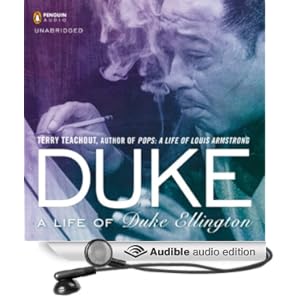No, A. Scott Berg, even if you have won a Pulitzer-Prize, even if you are a personality-and-event focused biographer and not an idea-focused one, you do not get a pass when you write an 800-page biography of Woodrow Wilson in the year 2013 to omit any reference whatsoever to the scholarship of Ronald Pestritto, or to the West Coast Straussian (WCS) scholars on the progressives generally.
Readers, Pestritto’s is the book you should buy. Are you really that interesting in knowing about more things that Wilson said, or in knowing about the major things that Wilson had to say?

Sure, most of Berg’s research is in primary sources, and concentrates on some newly-available ones, but still, a bibliography and an index that reveal not a single reference to Pestritto, or to non-WCS scholars who work with the WCS findings on the progressives?
Speaking of the latter class of scholars, one notices no reference to Sidney Milkis, Eldon Eisenach, or to our own James Ceaser’s seminal article (along with several others), on the “rhetorical presidency” and Wilson’s role in introducing it.
Berg can flash his “biographer” card at us political-science-oriented readers all he wants, but I still say he does not get such a pass.
So I say don’t buy the book, even if you are interested.
Consider what Amazon reviewer Brendan Moody, who for all I know is a liberal himself, says: Berg “is happy to present Wilson as the man presented himself: driven solely by a rational, intellectual sense of the greatest good for the greatest number of people.”
No-one who reads Pestritto can accept that presentation at face value. More Moody: “The result is an eminently readable biography, with a solid sense of pace and a fine balance among historical background, quotation, and narrative detail, that has nothing meaningful to say about its subject.”
Nothing meaningful, because Berg has apparently so internalized the liberal prejudices in favor of the core progressive ideas, that he is incapable of even seeing the possibility of a different take, of the possibility that that which was progressive was not necessarily good.
Am I being too hard? Too prickly?
This is the way typical American publishing has been and we just have to ride with it?
**********************************
Not to say that being conservative guarantees high quality. On the same bookstore trip I also leafed through the new book by Ira Stoll, John F. Kennedy, Conservative . To be fair, Stoll’s not trying to write a major JFK book, but a thematic one timed to make the marketing most of the 50th anniversary of the assassination. And sure, it is a more interesting thematic take than usual, and any deflation of liberal Camelot cult of JFK is welcome.
What do we learn? JFK was serious about his Catholicism—despite, I feel obliged to point out, his serial and rather ugly philandering —, was a real Cold Warrior, was thus in real conflict with the Left, whether Old or newly-emergent New, was a tax-cutter, and was serious about fighting labor racketeering. Not exactly news, any of this, even if it looks like Stern elaborates it all helpfully.
But these facts do not really count as evidence in favor of the main claim.
I index-scanned to see if Stoll addressed the issue I’m most interested in, whether JFK was a Democratic example of a Forthright Supporter of the Constitution , but alas, nothing on the Constitution, and nothing thematic on the Supreme Court. Nothing on natural rights, either.
Anyhow, I’m simply reporting an impression based on perusing and index scanning—if anyone’s actually read the book feel free to report further. The amazon reviews so far are full of praise.
*************************************
Then there was a book in the store that I instantly knew I had to buy—the new Terry Teachout biography of Duke Ellington.

Oh, man, it’s fantastic! Teachout’s writing just draws you in immediately. From the get-go he shows that he isn’t going to fall into the common idolization of Ellington as a man who could do no musical wrong. Rather, he shows you that some of his highest aspirations as a composer were really not met. Teachout’s prologue forces you to really face the fact, for example, that Ellington’s big Carnegie Hall history-of-black-folk suite “Black, Brown, and Beige,” despite the undeniable merits of its various parts, was an artistic failure as a whole, at least in terms of what it set out to do—and that Ellington’s limits in long-form composition, and his bad habit of procrastination were the main reasons why.
Not that Teachout is out to make some kind of revisionist evaluation that takes Ellington out of stellar realms he rightly belongs to, but his is a serious critical voice. You become aware of the artistic trade-offs that the Duke made by wedding his artistry to a constantly touring band.
And Teachout weaves the personal stuff, and its relevance to the artistry, quite appropriately. I just don’t have the words here to convey how great a biography of a truly great subject it is, at least so far.
You have a decision to make: double or nothing.
For this week only, a generous supporter has offered to fully match all new and increased donations to First Things up to $60,000.
In other words, your gift of $50 unlocks $100 for First Things, your gift of $100 unlocks $200, and so on, up to a total of $120,000. But if you don’t give, nothing.
So what will it be, dear reader: double, or nothing?
Make your year-end gift go twice as far for First Things by giving now.


